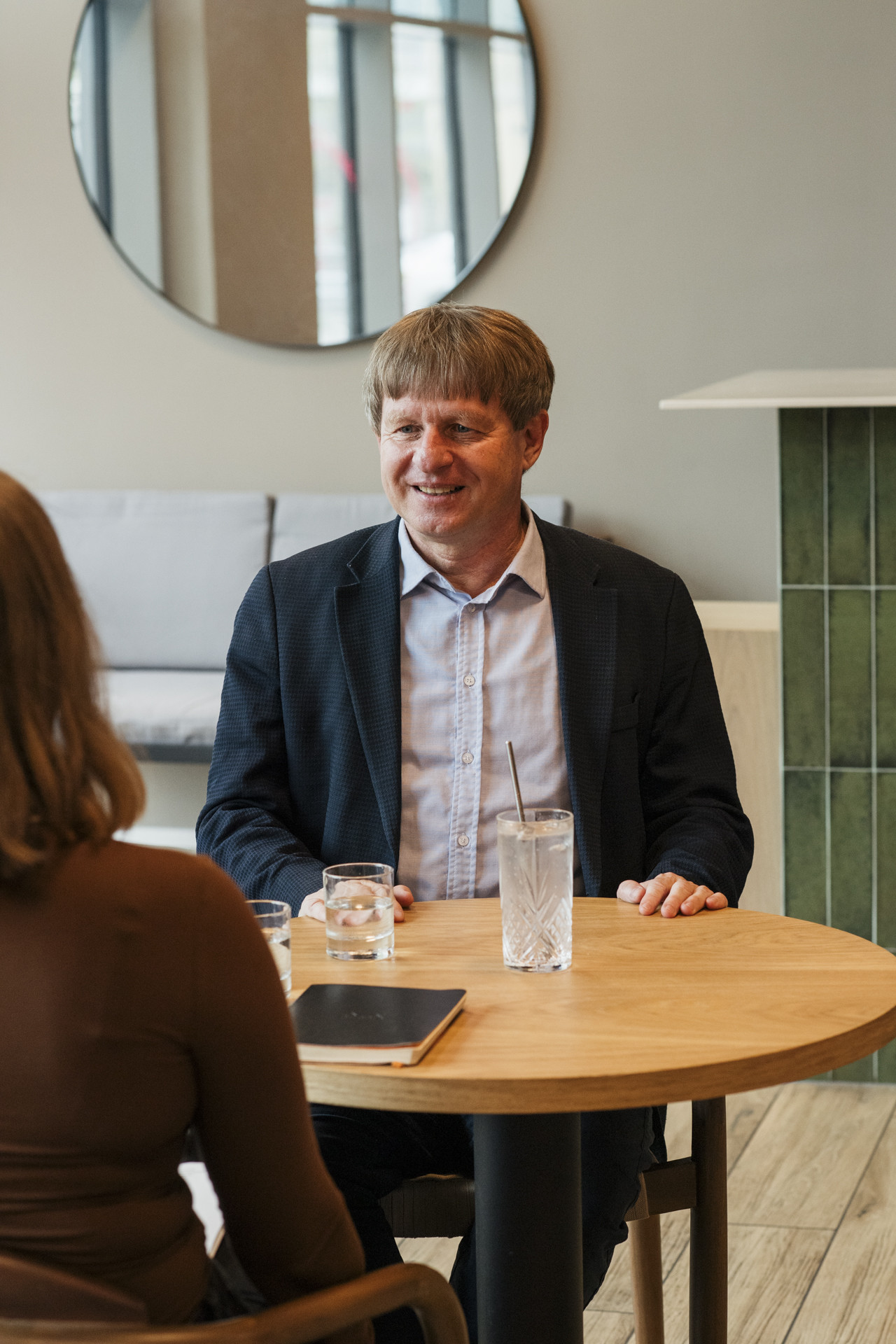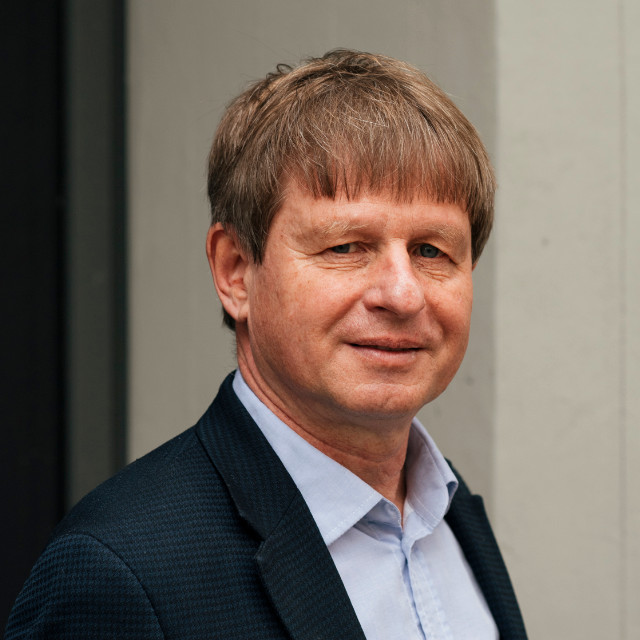Rethinking Collaboration with AI (EN)

Prof. Gerhard Schwabe explores how technology can enhance human collaboration. His work focuses on how digital tools, and now AI, support workflows and influence the way people think and interact.
Gerhard Schwabe always valued freedom and autonomy, principles he believes technical professions offer. He never considered himself a true technician – which is why he chose the most technical field he could see himself in: information systems, a field that combines technology and business. His PhD showed him that he enjoyed research and thrived on the independence and flexibility of academic life – which led him to pursue a career as a professor. “This job offers both freedom and an exciting environment. Being around young people keeps you young and at the pulse of what’s happening,” he states.
When AI joins the conversation

Since his dissertation, Schwabe’s research has focused on supporting collaboration between people. “In information systems, we work from the assumption that most real-world economic problems can’t be solved by technology alone,” he explains. “Introducing a new system means more than just implementing software – it requires rethinking workflows, adjusting communications, and aligning roles and incentives.” If you’re supporting financial advice, for instance, it’s not just the technical tools that need to change; the financial advisors also have to adapt their approach, the advice they give, the way they ask questions and how they interact with clients. Schwabe has explored these dynamics in various advisory contexts, including doctor-patient interactions, financial consultations and travel planning. Another long-standing area of his research is how groups can collaborate more effectively in workshops and brainstorming settings, and how digital tools can improve these processes. His interest in this area dates back decades, to a time when such sessions still relied on paper, flipcharts and sticky notes. As digital tools emerged, they helped streamline processes such as collecting, sorting and prioritizing ideas or developing action plans. Now, with the rise of AI, new possibilities – and questions – are emerging: “Can AI participate in brainstorming sessions, promote creativity, or even replace a real person?” Schwabe asks. One interesting finding from his recent work: “You have to tell the AI things that humans understand intuitively, such as how long answers should be,” he explains. In group settings, people naturally tend to match the length of their comments to those of others. AI, by contrast, often stands out: its responses are longer, perfectly punctuated, and free of typos. During a recent digital brainstorming session with students about the new Binzmühlestrasse canteen, participants recognized the AI for precisely these reasons.
Shaping minds and democracy

For Schwabe, the next big challenge is to train AI not just togenerate ideas, but to adapt to group dynamics by mirroring human communication styles. He is currently exploring whether AI can recognize the emotional tone of a conversation – whether the atmosphere is overly positive, critical or tense – and decide whether to reflect that tone or deliberately counterbalance it. “Sometimes, a group might benefit from a critical voice or even a bit of humor to shift the mood,” he says. In such cases, AI could take on specific roles and subtly influence the course of the discussion. Building on this idea and AI’s decision support capabilities, Schwabe envisions AI being used to support the work of management boards and boards of directors through so-called “AI boardrooms”.
Schwabe is also politically active – an interest that was sparked back in the 1990s during his habilitation. “I wanted to get involved in the political system because democracy is important to me. So I digitalized the work of the Stuttgart city parliament,” he says. The issue came to the fore again in 2021 when his wife was approached about a political role. Today, Schwabe is a member of the city parliament in Wetzikon, again motivated by his concern for democracy, which he believes is under threat both globally and in Switzerland. He views direct democracy as a vital safeguard against political disenfranchisement – and plans to continue contributing after his academic career ends.

